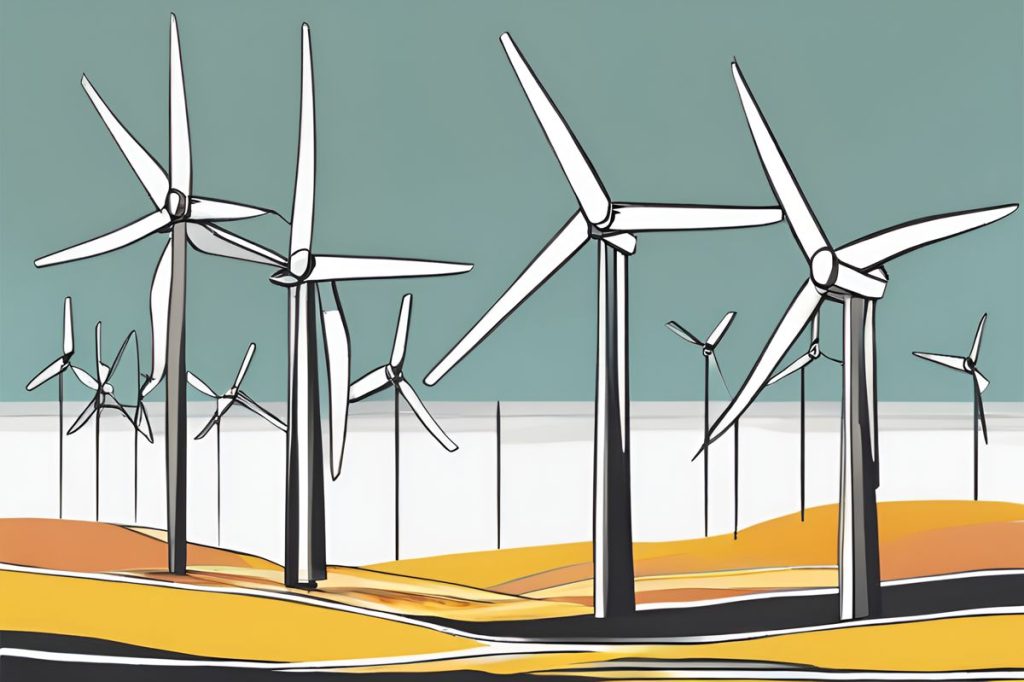Cyprus is stepping up its efforts to meet EU renewable energy targets, with a focus on green reforms and investments. The country’s national Recovery and Resilience Plan aims to pave the way for a sustainable future, setting a regional example in environmental stewardship and alignment with EU objectives.
How is Cyprus progressing with renewable energy and meeting EU environmental objectives?
Cyprus has been working towards meeting EU renewable energy targets, acknowledging the need for greener practices. While falling short initially, advancements are seen in green reforms and investments. The country’s updated national Recovery and Resilience Plan is key for adopting renewable energy, aiming for a sustainable future in line with EU objectives, and setting a regional example in environmental stewardship.
EU Targets and Cyprus’ Response
Cyprus, an island nation in the Mediterranean, has been identified as falling short of the European Union’s renewable energy targets. EU Commissioner for the Environment, Oceans and Fisheries, Virginijus Sinkevicius, highlighted the country’s modest contribution compared to the benchmarks established within EU legislation. Despite these shortcomings, he pointed out that Cyprus has made considerable advancements in green reforms and investments. The potential for renewable energy in Cyprus remains largely untapped, which presents opportunities for significant development in the sector.
In preparation for his upcoming visit, Sinkevicius discussed various environmental issues, including the management of Natura 2000 areas, which are protected regions for nature conservation throughout the EU. The Commissioner emphasized the necessity of effective measures for these areas to truly serve their purpose. He also acknowledged the challenge of balancing environmental protection with the growth of tourism, suggesting that these objectives need not be in conflict.
Environmental Challenges and Opportunities
The threat of increased wildfires due to climate change is a pressing concern for Cyprus. Commissioner Sinkevicius spoke about the importance of bolstering reforestation efforts, improving air quality, and addressing the surge in dust storms—a phenomenon that has been particularly problematic for the island. He emphasized that these environmental challenges require swift and decisive action.
The EU’s support extends to fostering bi-communal cooperation in Cyprus, particularly in environmental projects that benefit both sides of the divide. Through technical support, funding, and environmentally focused projects, the EU aims to encourage a collaborative approach to ecological sustainability on the island.
Fishing and Biodiversity Conservation
Sinkevicius took the opportunity to shed light on the EU’s Common Fisheries Policy, stressing the need for the fishing sector to adapt. The dual goals of meeting environmental challenges and ensuring the livelihoods of fishing professionals demand innovative strategies and thoughtful policymaking. By promoting sustainable practices, the sector can contribute to biodiversity conservation and maintain its economic viability.
The Commissioner’s remarks hint at a broader vision where conservation efforts go hand-in-hand with economic development. Sustainable tourism, responsible fishing, and investment in renewable energy sources are seen as pivotal to achieving this balance.
Engaging in Greener Practices
In view of these concerns, Cyprus’ updated national Recovery and Resilience Plan has been acknowledged as a vital instrument. The plan is designed to expedite the adoption of renewable energy and other green initiatives. It is considered a roadmap for propelling the country towards a sustainable future that aligns with EU environmental objectives.
Cyprus’ journey towards increased use of renewable energy resources is critical not only for meeting EU targets but also for setting an example of environmental stewardship in the region. With continued efforts and support, Cyprus has the potential to transform its energy landscape and contribute positively to the global effort against climate change.
How is Cyprus progressing with renewable energy and meeting EU environmental objectives?
Cyprus has been working towards meeting EU renewable energy targets, acknowledging the need for greener practices. While falling short initially, advancements are seen in green reforms and investments. The country’s updated national Recovery and Resilience Plan is key for adopting renewable energy, aiming for a sustainable future in line with EU objectives, and setting a regional example in environmental stewardship.
What environmental challenges does Cyprus face and how is the EU supporting the country in addressing them?
Cyprus faces challenges such as increased wildfires, air quality issues, and dust storms due to climate change. The EU is supporting Cyprus by fostering bi-communal cooperation in environmental projects, providing technical support, funding, and emphasizing the importance of swift action in addressing these challenges.
How is Cyprus working towards sustainable fishing practices and biodiversity conservation?
Cyprus, with support from the EU, is aiming to adapt its fishing sector to meet environmental challenges while ensuring the livelihoods of fishing professionals. By promoting sustainable practices, Cyprus can contribute to biodiversity conservation and maintain economic viability in the fishing industry.
What role does Cyprus’ national Recovery and Resilience Plan play in the country’s transition to renewable energy and green initiatives?
Cyprus’ national Recovery and Resilience Plan is a crucial roadmap for the country to adopt renewable energy and other green initiatives. It is designed to propel Cyprus towards a sustainable future that aligns with EU environmental objectives, setting an example of environmental stewardship in the region.

